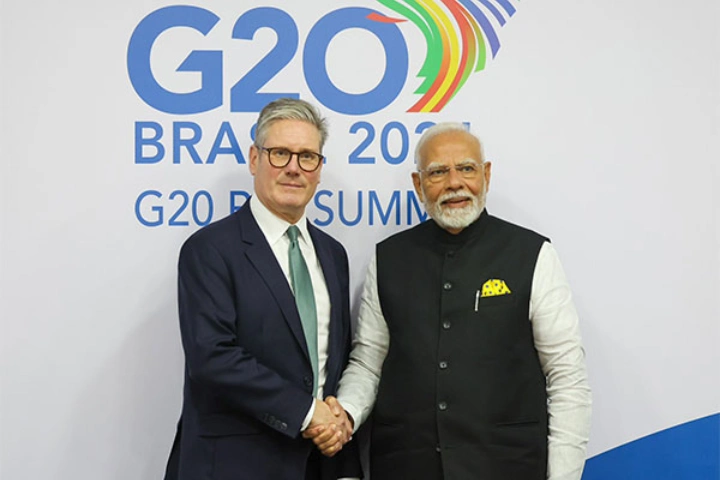
Following three years of negotiations and talks, India has finally struck a landmark trade deal with Great Britain.
In contrast to the USA’s raising of import tariffs, the UK has decided to lower its tariffs in order to secure a trade deal. This initiative has worked well for Great Britain, as they have secured the biggest and most economically significant bilateral trade deal the UK has signed since leaving the EU. As a result of the agreement, it is noted that bilateral trade is expected to swell by £25.5 billion ($34.1 billion) per year in the long run. That would represent a 60% increase from the 2024 level, based on UK government data.
This deal will make it easier for UK companies to export whisky, cars, medical devices, cosmetics, and other products to India, while cutting taxes on imports from India such as textiles, footwear, jewelry, gems, foodstuffs, etc. The UK government revealed that this trade deal does not affect immigration policy, but it does foster peace between the two nations and is expected to boost the economy by creating jobs, attracting investment, and driving growth.
Tariffs on gin and whisky, a key sticking point in previous negotiations—will be halved to 75%, with further reductions taking effect in later years.
Tariffs of 100% on more expensive UK-made cars exported to India will fall to 10%, subject to a quota limiting the total number.
The deal also includes provisions on the services sector and procurement, allowing British firms to compete for more contracts.
Under the terms of the deal, some Indian and British workers will also benefit from a three-year exemption from social security payments, which the Indian government called “an unprecedented achievement.” The exemption applies to staff of Indian companies temporarily transferred to the UK and to UK firms’ workers transferred to India. Social security contributions will be paid by employers and employees in their home country only, rather than in both places.
The deal is a win for free trade at a time when US President Donald Trump’s sweeping tariff campaign has put the idea on the defensive and raised fears of trade wars. It appears to have increased the impetus to strike this trade deal.




